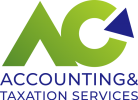Filing your tax return can be a nerve-wracking experience, especially if you’re not well-versed in the intricacies of tax laws and regulations. As a resident of New South Wales (NSW), Australia, it’s crucial to approach your tax return with care and attention to detail to ensure accuracy and compliance. Unfortunately, many individuals make avoidable mistakes that can lead to penalties, delays, or missed opportunities for deductions. In this article, we’ll highlight some of the most common mistakes to avoid when filing your tax return in NSW.
1. Neglecting to Report All Income
One of the most significant mistakes taxpayers make is failing to report all their income. Whether it’s income from employment, investments, freelance work, or government benefits, everything must be included in your tax return. The Australian Taxation Office (ATO) has access to a wide range of data sources, and discrepancies can easily lead to an audit or penalties. Keep track of all your income sources and ensure they are accurately reported.
2. Incorrect Personal Information
Simple errors in personal details can create unnecessary complications. Double-check your name, address, date of birth, and tax file number (TFN) before submitting your tax return. Ensure your TFN is correct and belongs to you, as using the wrong TFN can result in processing delays and potential issues with the ATO.
3. Overlooking Deductions and Credits
Claiming deductions and credits is a legitimate way to reduce your taxable income and potentially increase your tax refund. However, many taxpayers either overlook deductible expenses or fail to provide sufficient evidence to support their claims. Keep detailed records of work-related expenses, charitable contributions, and other eligible deductions. Ensure you have proper receipts and documentation to back up your claims.
4. Mistakes in Calculations
Simple mathematical errors can occur when manually calculating your tax return, especially if you’re handling complex tax situations. To avoid errors, consider using tax preparation software or engage a registered tax agent. These methods can help minimize the risk of calculation mistakes and ensure accurate tax submissions.
5. Missing the Deadline
Filing your tax return late can result in penalties and interest charges on any outstanding tax debt. The tax return deadline in Australia is usually October 31st for individuals. If you engage a tax agent and are already registered as a client before the deadline, you may have an extended deadline. Nonetheless, it’s best to file your tax return as early as possible to avoid last-minute rush and potential mistakes.
6. Misunderstanding Deductible vs. Non-Deductible Expenses
Not all expenses are deductible. It’s crucial to understand the difference between deductible and non-deductible expenses. While work-related expenses, certain home office expenses, and charitable donations are often deductible, personal expenses like private vacations, grooming, or non-work-related clothing cannot be claimed as deductions.
7. Ignoring Superannuation Obligations
If you have multiple superannuation accounts, ensure you’re not paying unnecessary fees and review your contributions to maximize potential tax benefits. Moreover, keep in mind that contributions to superannuation funds have limits, and exceeding these limits can lead to additional taxes.
8. Disregarding Government Updates and Changes
Tax laws and regulations can change each financial year. It’s essential to stay informed about any updates or changes to tax rules that may impact your return. The ATO’s website, official publications, and seeking advice from tax professionals can help you stay up-to-date and informed.
Conclusion
Filing your tax return in NSW doesn’t have to be a daunting task if you avoid these common mistakes. Take the time to gather all your income and expense information accurately, seek professional advice if needed, and stay informed about any changes to tax laws. By being diligent and attentive to detail, you can ensure a smooth tax return process and potentially maximize your refunds while maintaining compliance with the tax authorities. Remember, when in doubt, seek guidance from qualified tax professionals or refer to official ATO resources to avoid costly errors.


